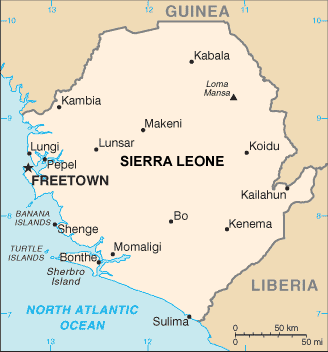Africans and Democracy
Regular elections, transparency and an open government are just some of the major yardsticks to democratic credentials. Over the years, African states have not been able to see the concept of democracy and good governance as issues which go beyond merely voting political leaders into positions of trust. They have forgotten the sad reality that democracy and good governance encapsulate the need for political accountability, press freedom, and the existence of a politically tolerant environment for the operation of political parties.Â
Primarily, most African states have still not been able to come to terms with the present day reality that, dictatorship and one party rule are of no essence to present day politics and that they are no longer fashionable in the practice of governance.
First and foremost, it is but a fact that the decision to allow for the election of people into government is just one of major steps towards attaining proper and effective democratic credentials. But at the same time, the need for all the features of democracy to be applied has often and again been so difficult for most African leaders to come to terms with.
In the West African sub region countries like Mali, Ghana, Sierra Leone, and few others have always been branded as models when it comes to the observance of good governance and democracy. Only two years ago, Sierra Leone experienced one of the most free, peaceful and internationally acclaimed general elections. Ghana has been making serious political strides, all aimed at ensuring proper and effective governance systems in place. But Guinea Conakry has not been a good example in the sub region and this is pathetic.
The same could be said of big brother Nigeria where elections ‘fraud’ and political malpractice have always taken over the call for an open and fair political contest. Practically, take a look at the end result of the elections that brought the current Nigerian President to power, or come down to the West Coast and look at Guinea Conakry where the military boys are still at liberty to always come into the political arena of the country even when it is clear that the role of the military is to protect, and not to rule a country. I am yet top see a military academy that gives training on how to rule a country.
Now from a general perspective, what has been happening in Africa has shown that we are as a continent still not ready to observe the principles of good governance. I need not elaborate much on recent happenings in Zimbabwe where, even as the then opposition Movement for Democratic Change recently celebrated a decade of its political existence, there isn’t much the country can show when it comes to the practice of democratic credential. Today in the continent, how many countries can boost of ensuring an enabling political environment for the operation of other political parties, or to what extent can these countries come out in the open to challenge publicly that they are enjoying high level of press freedom?
In the Gambia, the case is different with terror being used as a major political tool, by the ruling class against political opponents. Almost everyday, independent media practitioners are being cowed to be ‘with’ the government, much against the dictates of democratic will. Liberia hasn’t achieved much as far as the aspect of political governance could be looked at mindful of the fact that, this country only ended it civil war few years ago, and they are still experiencing their democracy.
Democracy calls for an open government and the need for an access to public held information but these have been lacking in most African countries and it is unfortunate to say the least. Even countries that are perceived to be the giants of the continent can’t boast of practicing real democracy. Their democratic pulses are weak extremely weak and there is the need for civil society to look at continuous issues like these.
Civil society groups are also paramount to the successes or failures of democracies. We have seen how they have helped ion dictating the pace of nation al development in most countries but in recent times, they have either proved to be weak, or politically motivated when dealing with most issues. They should in effect serve as a political stethoscope to check the political pulse of countries to determine their readiness to move along with the dictates of the people. But sorrowfully this has not been the case in most African countries, with Sierra Leone not be an exception.
Stay with Sierra Express Media, for your trusted place in news!
© 2009, https:. All rights reserved.






